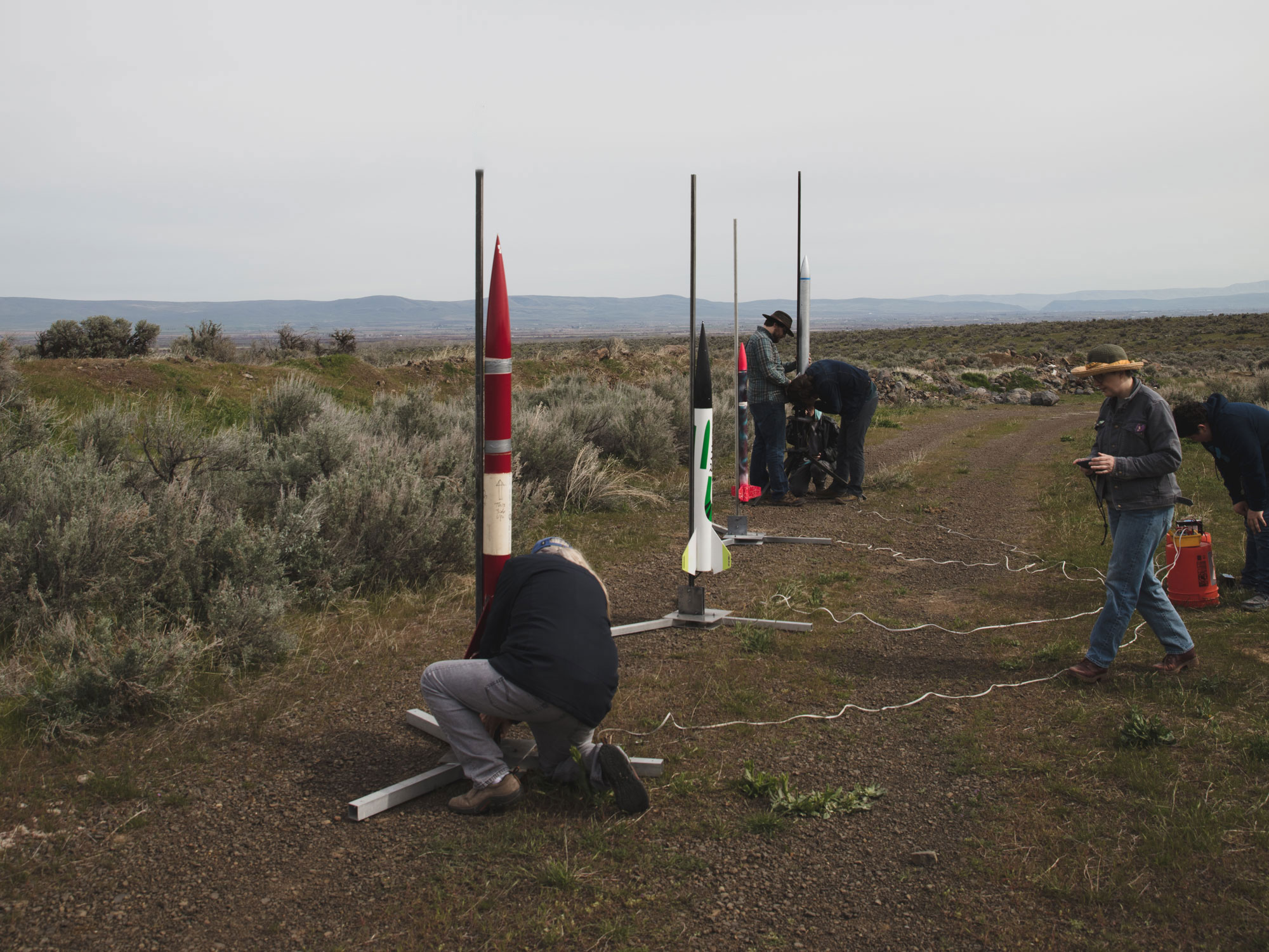BLAST OFF BLAST OFF BLAST OFF
Washington Space Grant and the Yakama Nation hosted a rocket launch for students across Washington state

Washington Space Grant and the Yakama Nation hosted a rocket launch for students across Washington state
It’s a cloudy day in White Swan, Washington. Students and staff from the UW, North Seattle College, Seattle Central College and local grade schools arrive at our launch site on along with Yakama Nation tribal liaisons who escort us onto their land.
Kristi Morgansen, principal investigator of the Washington Space Grant, helps set up a table of snacks and drinks under a tent, but nobody expects rain today. She’s aided by Chris Wallish, communications manager at the Washington Space Grant. Nearby, Toppenish High School teacher Gregory Van Dooren grabs equipment from a trailer. A sign of caution on the trailer’s door reads “Beware of … well, just beware.”
Students and staff gather to check in their rockets, providing information about the rocket’s build as well as a name for the object that’s about to soar thousands of feet into the sky. Some of my favorite rocket names today are Zeus, Vitus and Gungnir.
Next, they head to a rack of rails located a safe distance from the snack tent. Rockets are lined up and tested for continuity on the electrical system, provided by Dale Woodward from the Washington Aerospace Club. Back by the snack tent, Tracy Furutani (from North Seattle College) calls all rocketeers back to the safe zone near the tent and prepares for launch.
Excitement builds as Furutani announces each forthcoming rocket. A young rocketeer from the local middle school steps forward. I’m told he has successfully launched high-powered rockets, meaning he could theoretically earn his Level 1 and Level 2 certifications, but he’s too young: the National Association of Rocketry states that one must be at least 18 years of age to get certified. His launches today go off without a hitch, as usual.
After blastoff, the crowd keeps their eyes to the sky. All of today’s high-powered rockets are equipped with a parachute, and when the parachute engages, the rocket floats safely back down to the ground. Two local firefighters chat outside their truck. One of them tells the crowd he has been hit by fireworks in the past, but never a rocket, so he is not too worried. Someone shouts that they see the rocket.
Most rockets land within a short walking distance from the launch site. A safe landing is key, since certification requires an intact rocket post-launch. A student from North Seattle College appears pleased with his safely recovered rocket. “It’s so cool, I’m an actual rocketeer!” he says, as he’s handed his Level 2 certificate. Later that day, Van Dooren provides him with an extra engine from his trailer and they attempt a second launch. It fails, and a small fire appears near the rocket rails. Immediately, folks jump into action with a prepared fire extinguisher and the small flame is doused. “I was going to call 911,” says figherfighter Mark Hovis over his walkie talkie, “but I realized we’re already here.”
After 24 successful launches, eight certifications and a celebratory group photo, we’re escorted off Yakama Nation lands. Before leaving, I ask why many of us drove hours from Seattle to convene here in White Swan. Wallish explains that rockets can interfere with flight paths, and this area has quieter skies than the city. But she says it goes deeper than that: former Washington Space Grant principal investigator Robert Winglee established a significant relationship with Van Dooren and the Yakama people. I notice local students launching rockets, young children running around the launch site making friends with Seattleites and tribal members explaining the history of gravel mining on this land, and I look forward to the future of rocket science here in White Swan.